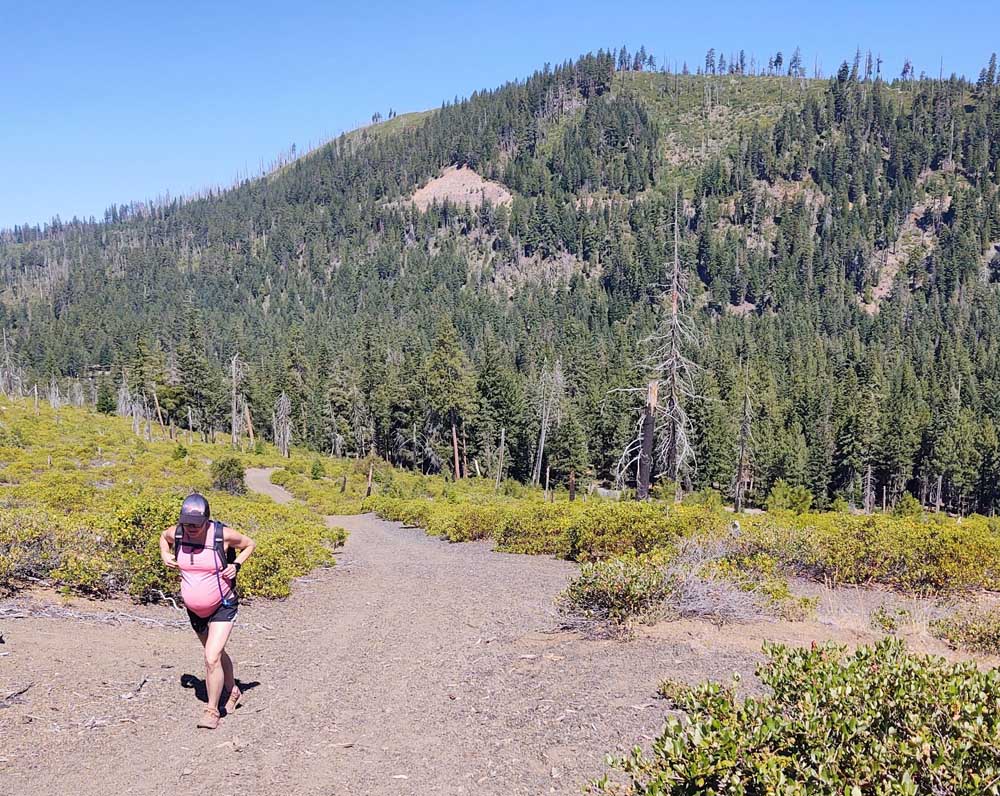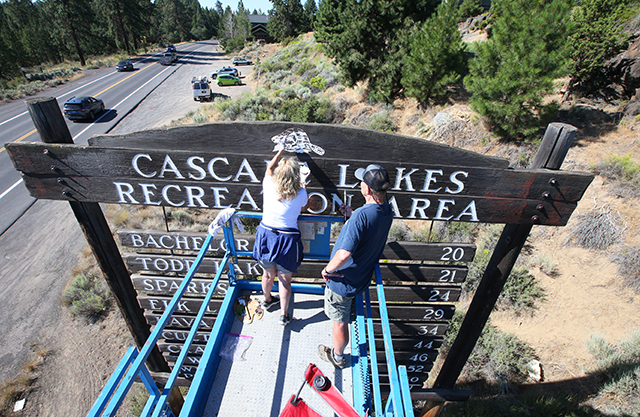Column: Building resilience while taking time off
Published 3:30 am Friday, July 23, 2021

- Columnist Cristina Peterson on the ascent during a recent hike with her husband from Suttle Lake to Scout Lake.
Anyone who is active outdoors will likely need to take a break from their favorite activity at some point.
It might be because of life circumstances, injury or illness. And for many who enjoy the outdoors, from serious athletes to recreation enthusiasts, taking time away from an activity can not only affect physical health but also mental well-being . It can be so hard to change up a routine, to not have usual outlets for energy and to notice how time away from an activity diminishes fitness or skills that took time to build.
Trending
Despite these breaks, it’s important to remain resilient, which can be so helpful in many life situations. Resilience is the ability to withstand disturbance events, and then to return stronger. Look to the natural world for evidence of resilience. Evolution has built systems to withstand disturbances of all kinds, from human-caused to natural events. Forests regenerate. Populations return stronger than before.
I’m currently taking a break from running and rock climbing since I’m about nine months pregnant. Those activities and just being outside, away, in beautiful places keep me present in the moment and bring me clarity like few other activities.
But I’m learning to cope, to adapt. Some days, it’s easier than others, but I truly believe that with the right mindset, anyone can persevere through a hard time and become a better person through it. Taking lessons from ecosystems and from other wise people in my life, here are some tips for dealing with time away from a favorite activity.
Diversify your interests to broaden your identity
It can be even harder to take time off if a single activity is your only outlet or form of exercise. Often if an injury prevents you from doing one type of sport, others are still possible. For example, cycling if you can’t run, doing strength training if you can’t climb. Walking, swimming and yoga can all be as gentle or intense as a person’s body allows. If you really have to be still, explore other interests that help you find calm. Escaping into a good book, trying new recipes in the kitchen or learning a craft are all options that often require a focus that leads to staying present the moment.
Similarly, if your identity and self-worth are tied to a single sport, when it is removed even temporarily from life, it can cause real emotional distress. Know that your value as a human goes way beyond how hard you climb or how many miles you run. Think about what you value in others. Identify yourself by the type of person you want to be. If you want to be a kind or respectful or fun person, you can be any of those things regardless of what you are doing.
Trending
Talk to others
Everyone takes time off at some point. So you’re not alone, and you’re not likely the first person to experience the frustration, fear of missing out or other emotions you might be feeling. Find others who can relate to your situation. You may find that other athletes have been in the same place and can offer support or encouragement that, even though you may be losing fitness in the short term, taking care of yourself will be beneficial in the long term. If you don’t know anyone who can provide perspective, seek out a professional therapist to talk to during a down time.
Reframe situations to find the positives
Once you accept a situation for what it is, you can find lessons to learn and focus on the positives that could come from it. Time off from an outdoor activity may open up time and energy for someone or something else in your life. Learn from the circumstances that landed you where you are but don’t dwell on the past. Stay present, even if it’s uncomfortable. Feel the pain or the suffering; acknowledge them. But know that it won’t last and if a return to sport is possible, use the time off to plan how you can come back stronger.
It’s not easy to take time away from favorite activities. Learning to be resilient through hard times though, will improve your mindset in all of life.







